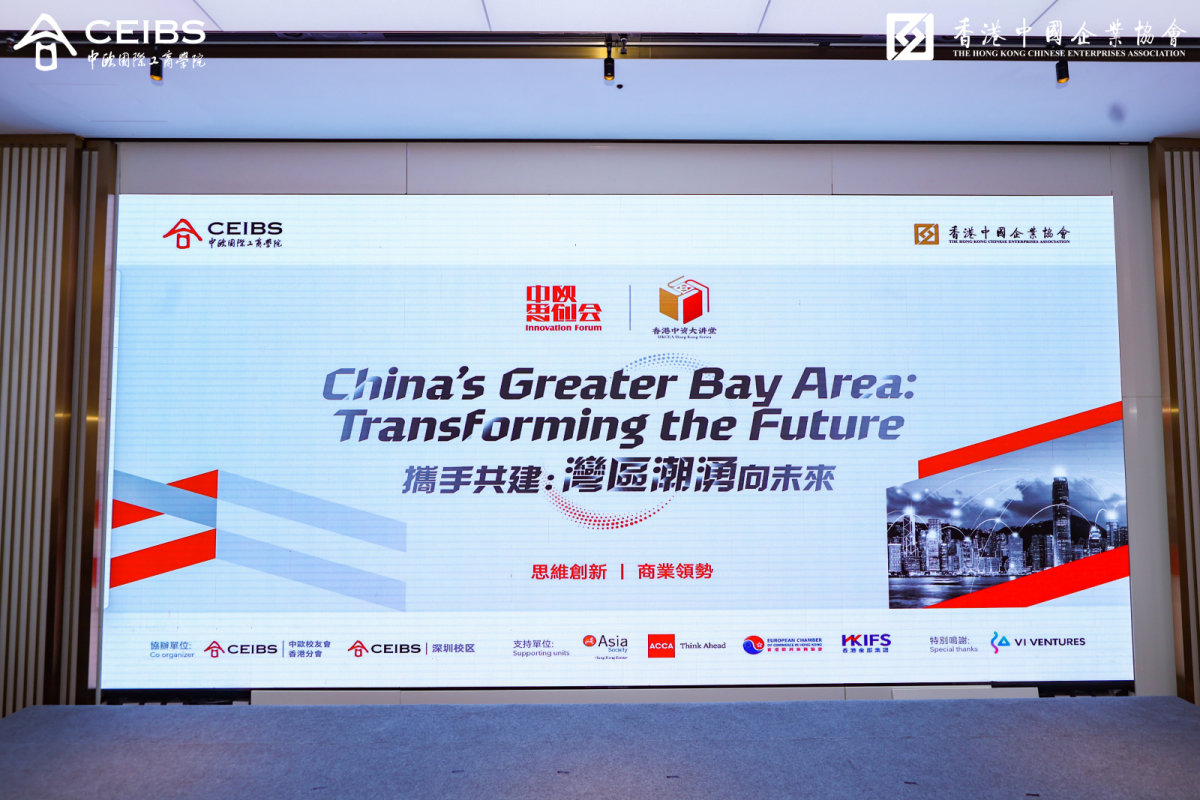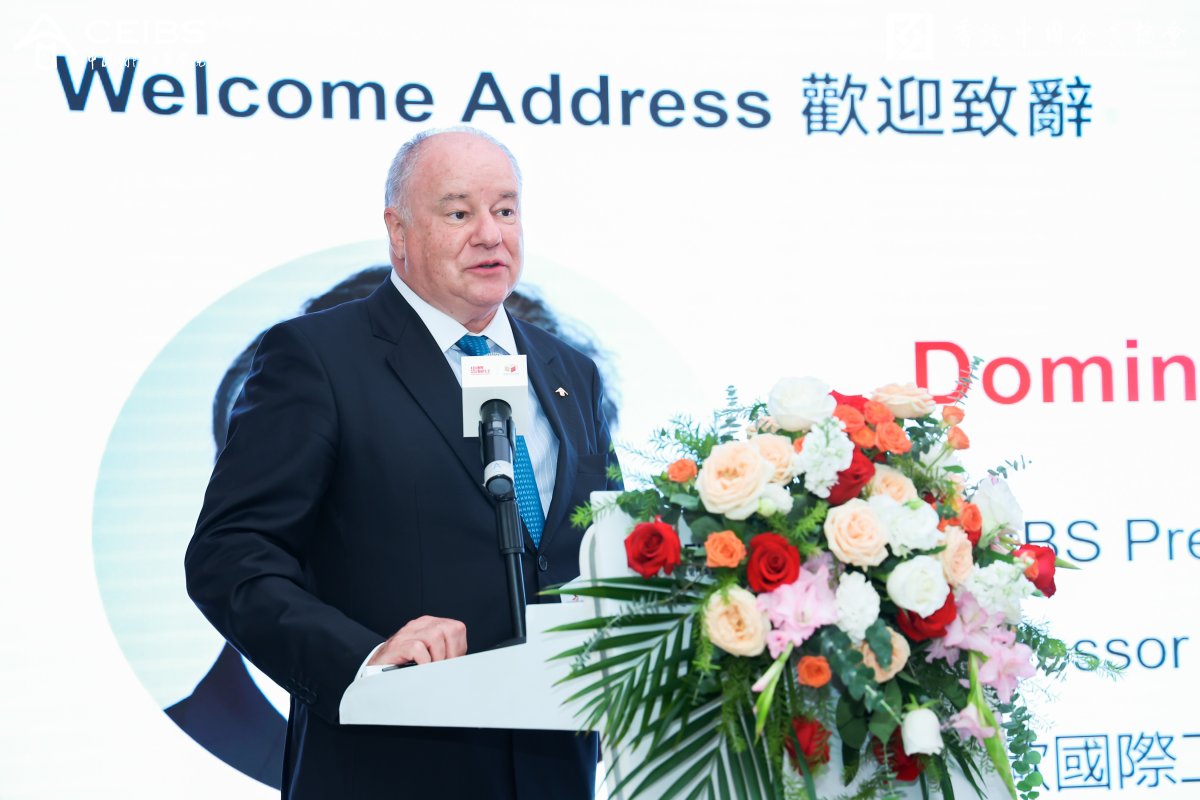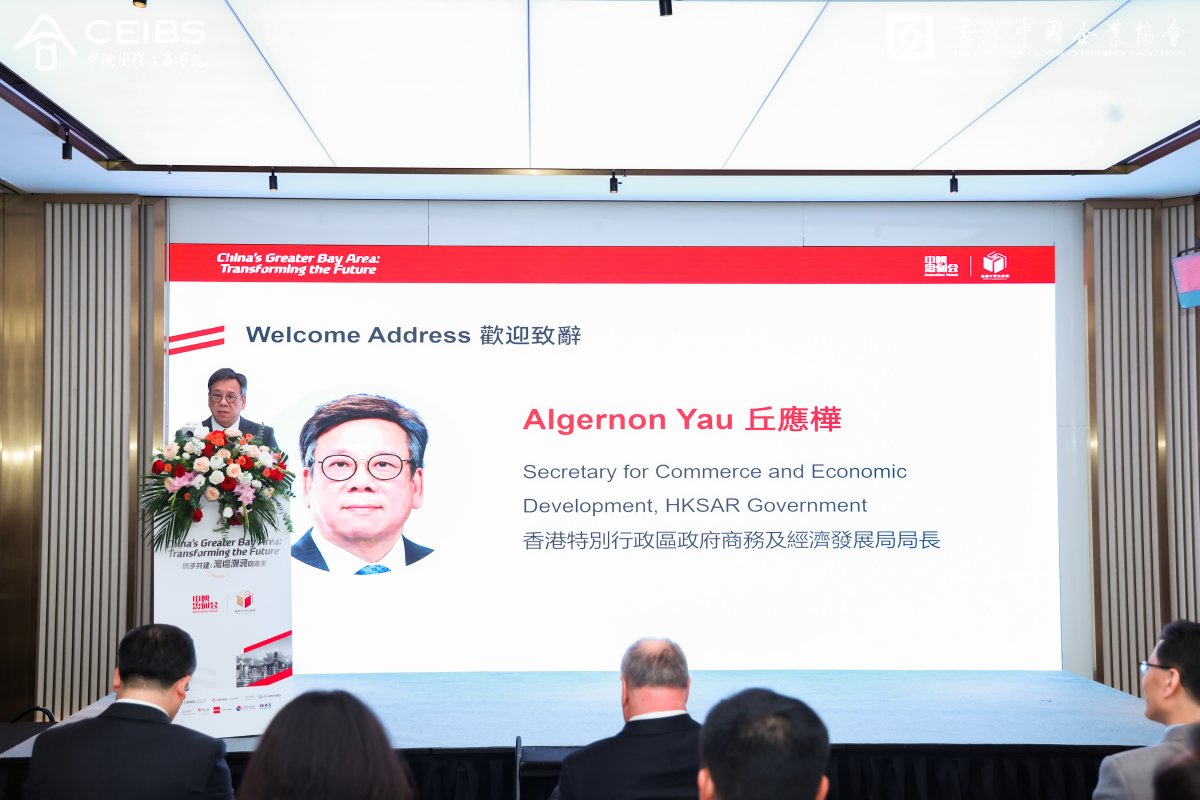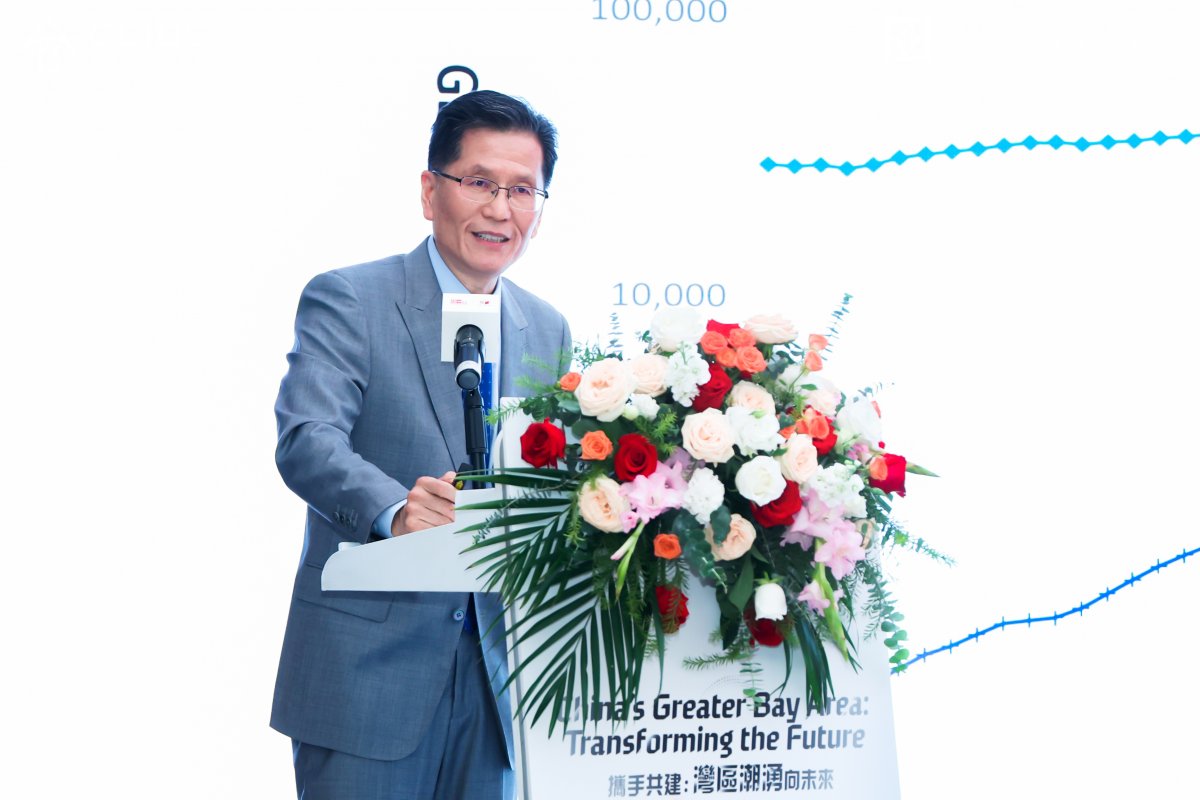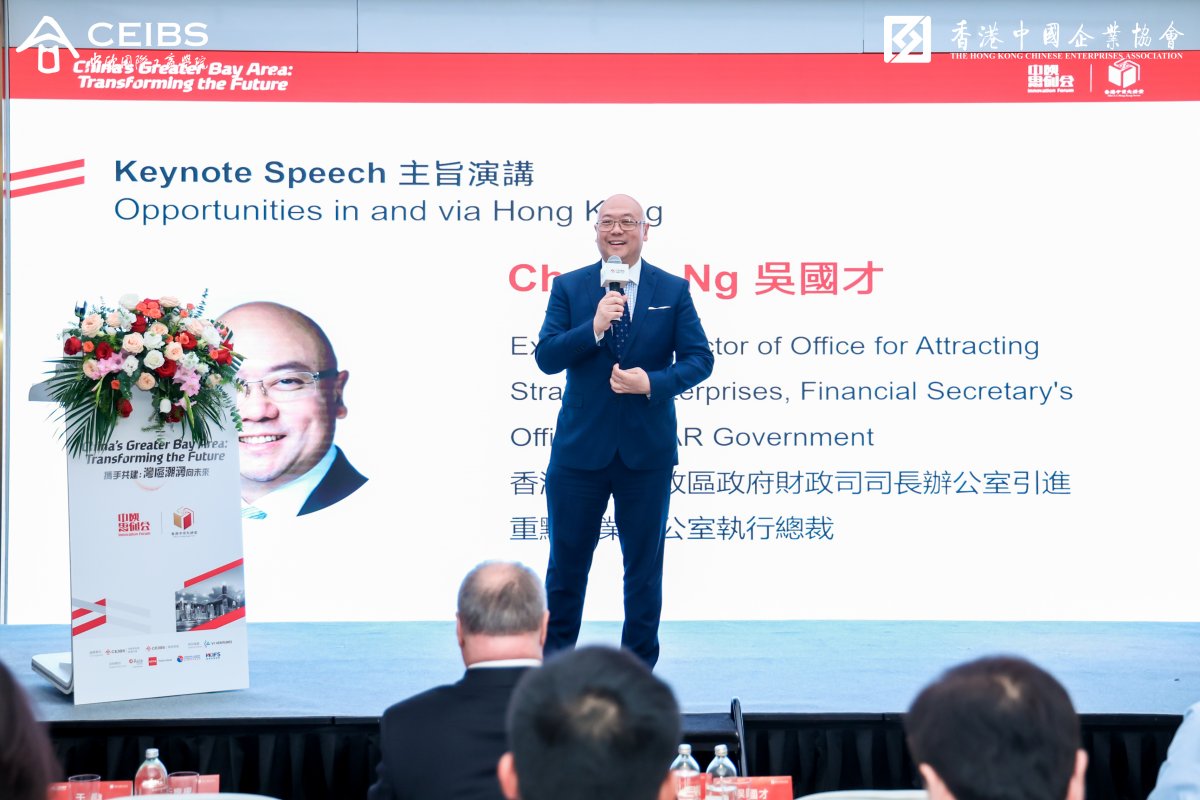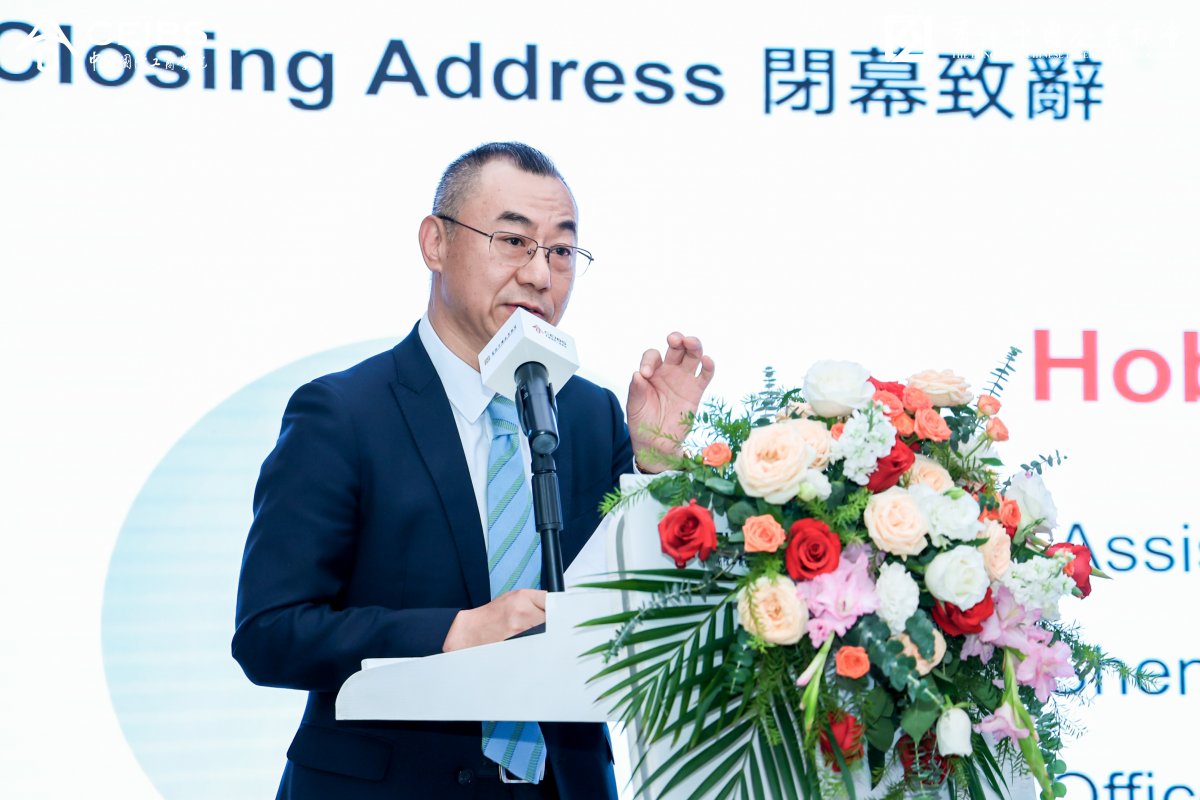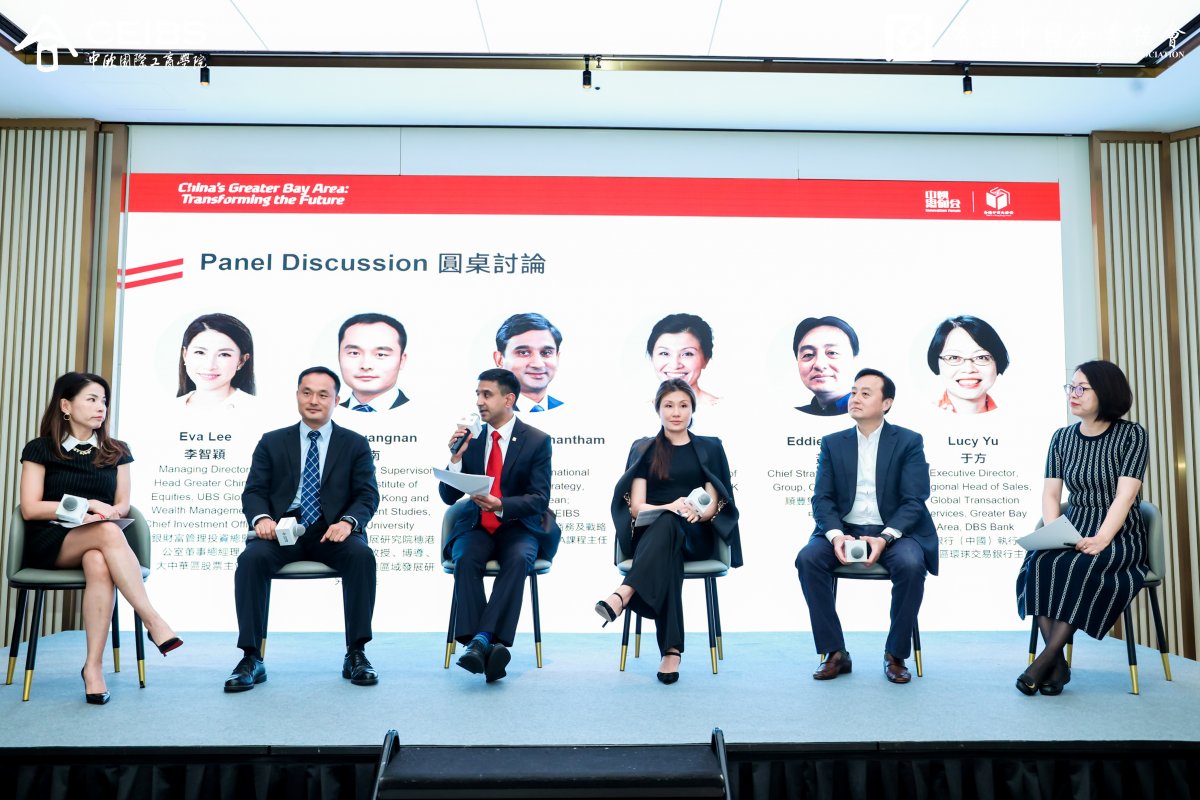Regional strengths and global integration key to long-term growth of China’s Greater Bay Area
June 2, 2023. Hong Kong – Prospects for long-term growth, integration with the global economy and the ability to capitalize on regional strengths will determine to the future of the Guangdong-Hong Kong-Macau Greater Bay Area (GBA).
This was just part of the message delivered today to an audience of more than 260 participants at the CEIBS Innovation Forum Hong Kong 2023.
The event, which was organized by CEIBS and The Hong Kong Chinese Enterprise Association together with the CEIBS Alumni Hong Kong Chapter and CEIBS Shenzhen Campus, took at deep dive into the topic of China’s Greater Bay Area: Transforming the Future.
In his welcome address, CEIBS President (European) and Professor of Marketing Dominique Turpin noted that the forum presented a valuable opportunity for representatives from academia, business and government to come together to discuss the future of the region.
He added that, “As part of the school’s current development plan, helping the GBA is one of CEIBS’ strategic priorities.”
Prof. Turpin was followed by Secretary for Commerce and Economic Development, HKSAR Government Algernon Yau, who emphasized the opportunities and importance of the GBA role in China’s economy.
“The regional government will work with people from all walks of life to promote financial innovation, business experience sharing and the future development of the GBA so that everyone can benefit,” Mr. Yau said.
CEIBS Professor of Economics and author of Catching up to America: Culture, Institutions and the Rise of China Zhu Tian then offered the forum’s first keynote, in which he noted that when discussing the future of China and the GBA, it is important to keep an eye on long-term – rather than short-term – growth.
“So, our question is, can China continue to grow relatively faster than most other countries – at around 5% per year – for the next 10 to 20 years? If the answer is ‘Yes,’ then we are going to see a very different China 15 years from today,” he said.
Moreover, Prof. Zhu added, three key factors have served as the main drivers of China’s development over the past 40 years and will likely play a leading role in the future of the GBA.
“China’s rapid growth in per capita GDP has been helped by its higher savings than other countries and its relatively higher quality of education. These have made it capable of absorbing existing Western technologies and developing indigenous innovation capacity leading to faster economic catch-up,” he said.
Executive Director, Office for Attracting Strategic Enterprises, Financial Secretary’s Office, HKSAR Government Charles Ng also delivered a keynote speech in which he highlighted some of the advantages and opportunities available to the GBA.
“Fast-forward ten years from now and the GBA economy is going to double in size to over 4 trillion dollars, equivalent to the sixth or fifth largest economy in the world or the German economy today. There are not a lot of countries or regions in the world where you have this kind of growth,” he said.
Mr. Ng added that, as an important part of China’s strategic direction, the GBA has many of the ingredients needed to transform into a hot spot for development and one of the main engines of the country’s national economy.
“You have Hong Kong, a global financial sector; you have Shenzhen, a major innovation hub; and you have the GBA for advanced manufacture and innovation of the supply chain – all that is within one hour,” he said, adding that the region also serves “as an international platform for where East meets the world.”
In his closing address, CEIBS Assistant President, Chief Representative of Shenzhen Campus and Alumni & Development Office Director Hobbs Liu noted the importance of events such as the Innovation Forum Hong Kong in promoting exchange on topics related to the transformation of the GBA.
“CEIBS has been rooted in Southern China for more than 20 years and we now have more than 3,000 alumni in the GBA. In the future, we will continue to discuss topics such as digitalization and regional cooperation, participate more actively in the construction of the GBA, and contribute more to China’s regional and national development,” he said.
The event was hosted by CEIBS MBA Programme Director and Professor of International Business and Strategy Shameen Prashantham and featured a panel discussion and Q&A with CEIBS alumni and representatives from Sun Yat-sen University, InvestHK, SF Group, UBS Global Wealth Management and DBS Bank.
Find out more about upcoming CEIBS Innovation Forums and other events here.







